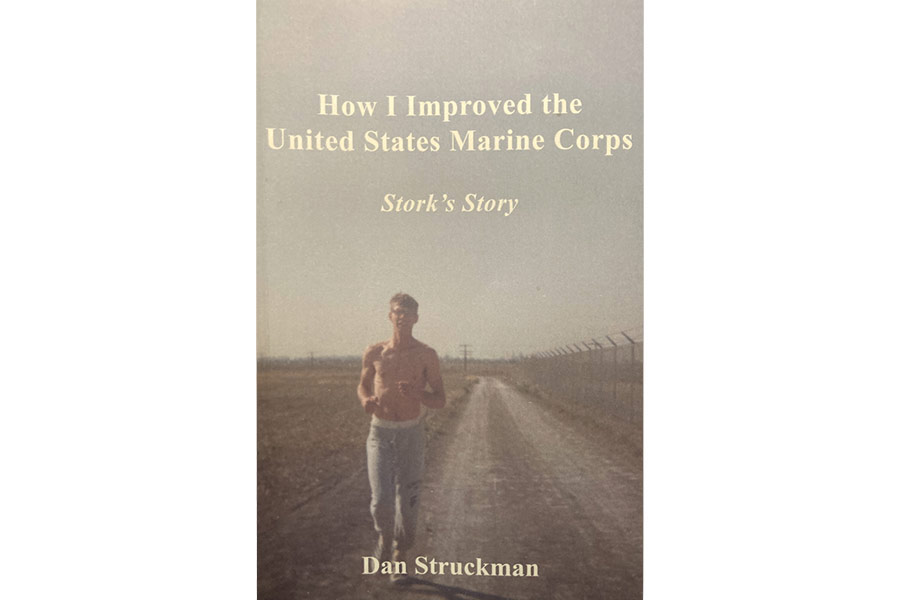Dan Struckman’s: How I Improved the United States Marine Corps
By Aaron Parrett
Dan Struckman may not be the next Chesty Puller, but he has written a pretty good book called How I Improved the United States Marine Corps: Stork’s Story (2024). Just out from Basement Press, Struckman’s memoir is one hell of a read, as my cousin Dave would say (and I fully expect him to say exactly that once he reads the copy I just mailed to him), not just because Dave too was a marine, but because he likes reading and knows a good story when he sees one.
Like my cousin Dave, Dan Struckman grew up in Montana in the early fifties—an era most old timers like to describe as “simpler times,” but as How I Improved the United States Marine Corps demonstrates, growing up is never “simple.”
Struckman describes an early childhood spent in Fort Missoula, driving often with his mother up to Kalispell to visit her parents after Dan’s father died from cancer when he was four years old. Then the family moved to Dillon so his mother could take a job as a schoolteacher, and then, after he graduated from high school, Dan moved back to Missoula to go to college. After reconnecting with childhood friends and becoming something of a hippie, Dan suddenly decided to join the Marine Corps. “I was so terrified of Vietnam that I figured the only way for me to deal with it was to sign up for the Marines,” Dan told me when I visited with him on the phone last week.
That’s only one part of How I Improved the United States Marine Corps, though. The book is mostly about how Dan grew up and became the person he is today, a story that is deeply connected to a couple of different Montana communities and people. The narrative is difficult to categorize, but it keeps the reader turning pages, which to my mind is the surest sign of a good book. At times it reads as if Catcher in the Rye had been written by a seventy-year-old trying to make sense of his weird childhood. It’s laugh-out-loud funny like that book, but then it’s also full of poignant moments that might bring a tear to your eye. Dan’s book also reminded me of Jean Shepherd’s brilliant In God We Trust, All Others Pay Cash (the basis for the film A Christmas Story).
What struck me most was the matter-of-fact tone Struckman maintains throughout the book, no matter what is happening. He reports on the bad as honestly as the good, and his friends range from fellow jocks on the many varsity teams he played on in high school to the more famous (and infamous) Missoula characters he fell in with in Missoula in the 1960s. At one point, he describes how in fifth grade, he almost burned the family’s house down while hot-wiring an electric motor. “You could see where the extension cord wire burned a big black S shape on the floor, but I tossed a rug over it,” Dan writes. “My sister’s hassock was burned, so I hid it in the basement.”
It’s also a story of family. Dan weaves a narrative about his grandparents into the book as well, for example. But he also conveys what it was like to start his own family while in the Marines, moving from base to base, having kids, all while worrying about Vietnam. In the end, Struckman’s gamble worked out: he spent 5 years in the Marine Corps, mostly in California and Japan, and was never assigned to Vietnam after all. Struckman tells the story in a deadpan way: “The sergeant asked me if I wanted to go to Vietnam…I told him my wife and kids would be bummed if I went to Vietnam, so he assigned me to MABS-12” in Iwakuni, Japan.
Dan moved back to Montana permanently in 1976, first to Missoula, and then Billings where he has lived for forty years. He devotes his time to his large family of children, grandchildren, nieces, and nephews, and continues to write a blog about his life. You can order a copy of How I Improved the United States Marine Corps at [email protected]. His blog is: insearchofbud.com MSN









